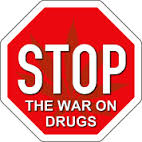Should Drug Possession be De-Criminalised?
Australians are no strangers when it comes to illicit drug use. According to the United Nation’s 2014 World Drug Report Australia surpasses every other country when it comes to ecstasy and cannabis use, was third for methamphetamines and fourth for cocaine. More than 40 per cent of us have used drugs illicitly and we have one of the highest rates of illegal use per capita despite also having some of the most expensive prices.
The Daily Telegraph reports more than 10 per cent of the working-age population regularly use cannabis, with 1.9 million people aged 15-65 using it in the last 12 months.
The World Drug report also showed that annual use among Australians and New Zealand for all drugs except for opiates like heroin “remain much higher than the global average.”
Is Australia losing its war on drugs?
With these kinds of numbers it looks like we are losing our war on drugs. The drug problem is all about supply and demand. With reduced demand there would be a less lucrative market for drug manufacturers and distributers. We need to look first at what is creating the demand and why Australia leads the world in illicit drug use if we will ever be successful with our war on drugs.
Whether prescribed or illegal, why do Australians love their drugs so much? First, let’s look at the historic basis for our current drug use. Earlier in the 20th Century, Australians were exposed to narcotics such as heroin, morphine and cannabis through “medicinal” preparations that were legally prescribed by doctors. In fact, morphine “was not prohibited in Australia until July 1953.” However, prohibitive laws have proven to be ineffective as an unprecedented use exploded in the 1990s, according to James Rowe\s article in the Conversation.
People are dying from drug overdoses and communities are being ravaged because Australia believes more in crime and punishment then it does on taking responsibility for the drug problem. Instead it leaves the criminal black market in control of quality and pricing.
As James Rowe highlights, when the government stands back and hands control to a market that is purely motivated by profit, “it abrogates all responsibility to provide the means to protect the people it purports to govern” and is “actively harming the people it is supposed to help.”
Why drugs should be decriminalised.
The question is, since the law and order approach has completely failed to deter drug use according to critics, then what should we as a nation do to manage it and the harms associated with it? In our war on drugs we tend to forget that the people who are using drugs are every day citizens who for one reason or another have become involved in drugs. They are your brother, your co-worker, your neighbour, your parent and your child.
As Greens leader Richard Di Natale is quoted in News.com.au, drug addiction is a “health problem, not a criminal one” but somewhere along the way, society decided drug users were morally failed and should be treated like criminals. Incarcerating people for a medical condition isn’t doing anyone any good. Taking children away from their parents and putting them in care only to perpetuate the cycle is not stopping people from using drugs. What we need according the Age, is public debate about “policies to minimise harm.”
The Green’s party in recent years has sparked a national debate about transforming our approach to drugs from one that blindly punishes certain community groups to one that mitigates harm through strategies like pill testing, medically supervised injecting sites and needle exchange programs in prisons. The Green’s new policy platform highlights how “the current punitive approach to drug use has failed to stop illicit drug use.”
Portugal, a global leader in drug policy, decriminalised drugs 15 years ago, which has led to a decrease in drug use, crime, disease and overdoses.
In its annual report, the Global Commission on Drug Policy stated prohibition has had “little or no impact” on drug use and has advocated dumping the civil and criminal penalties for drug use and possession.
The question is however, will the Australian government ever display the leadership needed to take back control of these drugs from the underground interests by championing evidence-based policy and channeling people through the healthcare instead of the criminal justice system? Or as Rowe suggests, are there too many vested interests in keeping drugs illegal, like the industrial law enforcement complex that thrives on drug war funding?







